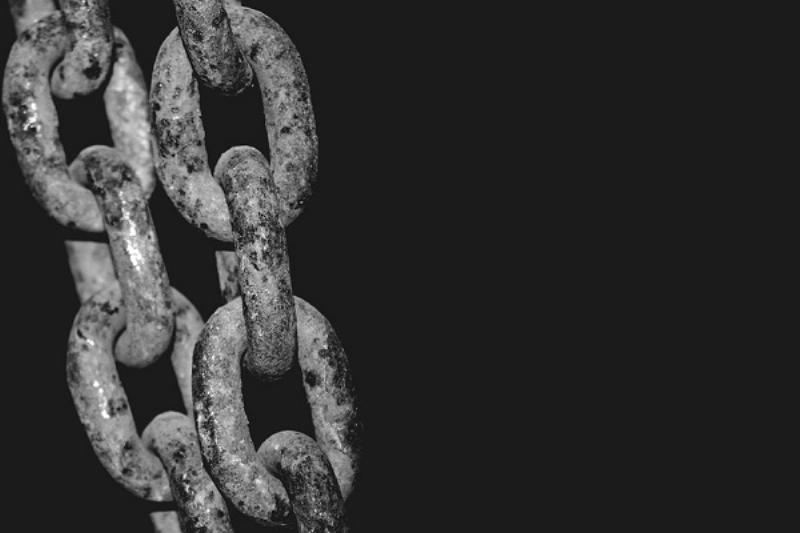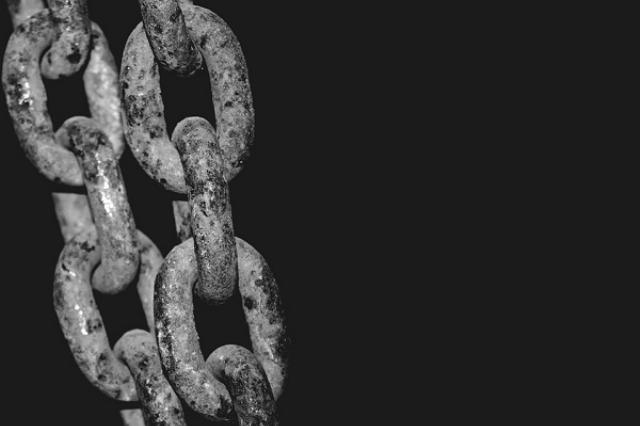


The Hill reports that Democrat lawmakers have “reintroduced a resolution to offer reparations to descendants of enslaved Africans and people of African descent” to the tune of $14 trillion.
However, Article I, Section 9 of the U.S. Constitution clearly states, “No Bill of Attainder or ex post facto Law shall be passed.” And Article I, Section 10 says, “No State shall ... pass any Bill of Attainder, [or] ex post facto Law.” Apparently, the founders thought it important to ban such legislation at both the federal and state levels.
The problem is that social justice is unlawful. It sentences an entire group to be punished — in this case, by payment of punitive taxation — without any due-process rights, and it renders punishment for misbehavior that was not illegal when it occurred. (Remember, slavery was not illegal before the Civil War.) Also, Congress possesses no judicial power to find people guilty of crimes, which is the constitutional role of the judiciary.
Cori Bush has said, “For over 400 years, this country has profited off the stolen labor, the stolen land and stolen lives of black people.” But what she has failed to point out is that there is much in the way of nuance on this issue.
We might begin with the fact that chattel slavery in America was instituted due to a lawsuit by a black freeman named Anthony Johnson. Johnson was one of the first twenty blacks to settle in the British colony of Virginia, arriving as an indentured servant who “served out his contract and went on to run his own tobacco farm and hold his own indentured servants, among them [John] Casor.” So a black man, freed from his contract of indenture by 1623, embraced his right as a freeman to issue contracts of indenture. In 1654, “Johnson sued his neighbor in a case that would change America’s history forever.” In court, Johnson said John Casor, who claimed he had worked off his seven years of bondage, “was his servant ‘in perpetuity,’ and the courts ruled in his favor.”
So, ironically, permanent enslavement “was brought to North America in 1654, when Anthony Johnson, a black man, convinced a lawcourt he was entitled to the lifetime services of John Casor, also a black man. “This was the first judicial approval of life servitude, except as punishment for a crime.”
According to R. Halliburton, Jr., “free blacks owned slaves in Boston by 1724 and in Connecticut by 1783; by 1790, 48 black people in Maryland owned 143 slaves. One particularly notorious black Maryland farmer named Nat Butler ‘regularly purchased and sold Negroes for the Southern trade.’” Indeed, blacks held slaves in all thirteen colonies.
Black ownership of slaves continued through the Civil War. Likely because black slaveholders were in the minority among masters, they were often the most vocal in their support of slavery. Henry Louis Gates, Jr. writes: “Perhaps the most insidious or desperate attempt to defend the right of black people to own slaves was the statement made on the eve of the Civil War by a group of free people of color in New Orleans, offering their services to the Confederacy, in part because they were fearful for their own enslavement: ‘The free colored population of Louisiana ... own slaves ... and they are ready to shed their blood for her defense.’”
And, although some of America’s founding fathers did own slaves, they were not as committed to the peculiar institution as many have been led to believe. George Washington, upon drafting his will, “included a provision that would free the 123 enslaved people he owned outright. This bold decision marked the culmination of two decades of introspection and inner conflict for Washington, as his views on slavery changed gradually but dramatically.”
Washington’s change of heart was, in large part, due to his personal slave and bodyguard, William Lee, who “served with Washington throughout the Revolutionary War. Lee was responsible for organizing the general’s personal affairs, including his voluminous papers, and holding his spyglass. As the attendant to a prominent figure, Lee became a minor celebrity. Postwar visitors to Mount Vernon occasionally sought out the ‘famed body-servant of the commander-in-chief.’” It has been said that “the Army during the Revolutionary War was the most integrated that the Army would be until the Korean War.” Washington had much to consider, when it came to the issue of black soldiers helping to fight for America’s freedom.
Another founder who opposed slavery was Thomas Jefferson, who, during his presidency, halted the importation of slaves by enacting the 1808 Clause of the Constitution. Jefferson believed that slavery ran contrary to Natural Law. Early on, Jefferson wrote a clause prohibiting slavery in his original draft of the Declaration of Independence, where he referred to slavery as a “moral depravity” and a “hideous blot.” As governor of Virginia, Jefferson succeeded in banning the importation of slaves in 1778. Jefferson was also legally able to free five slaves in his will, due to their not having to be held as collateral for the debts owed by the estate.
So, oddly enough, not all slaveholders were white. And not all whites owned slaves. Of those who did own slaves, many did what they legally could to free them. In any case, an important postbellum American virtue is that America did, in the end, ban slavery, whereas many nations, such as Communist China, enslave people to this day. So the issue is more complex than Democrats like to admit. And ultimately, there is simply no justification, legal or otherwise, to punish people who never owned slaves, in order to reward people who never were slaves.
Paul Dowling’s book on the Constitution is Keeping a Free Republic — downloadable for $1.99. Additionally, Paul has contributed to Independent Sentinel and Free Thought Matters.

Image via Max Pixel.
